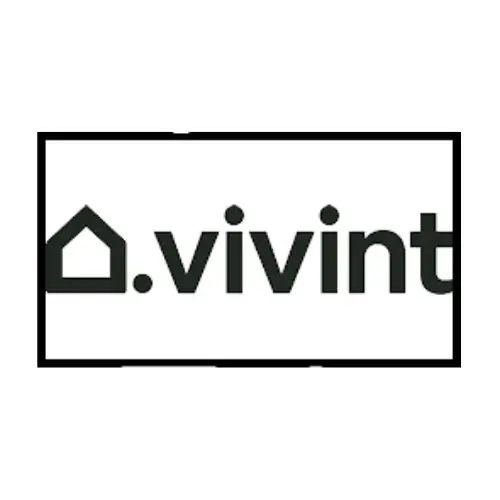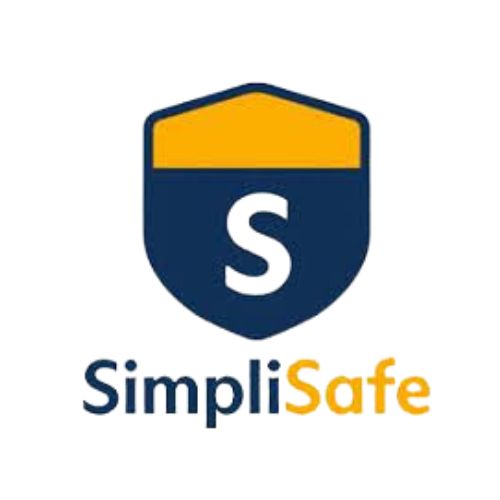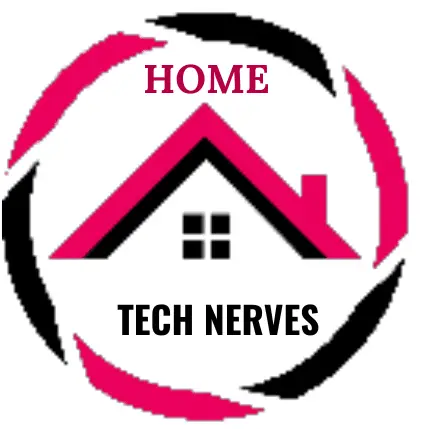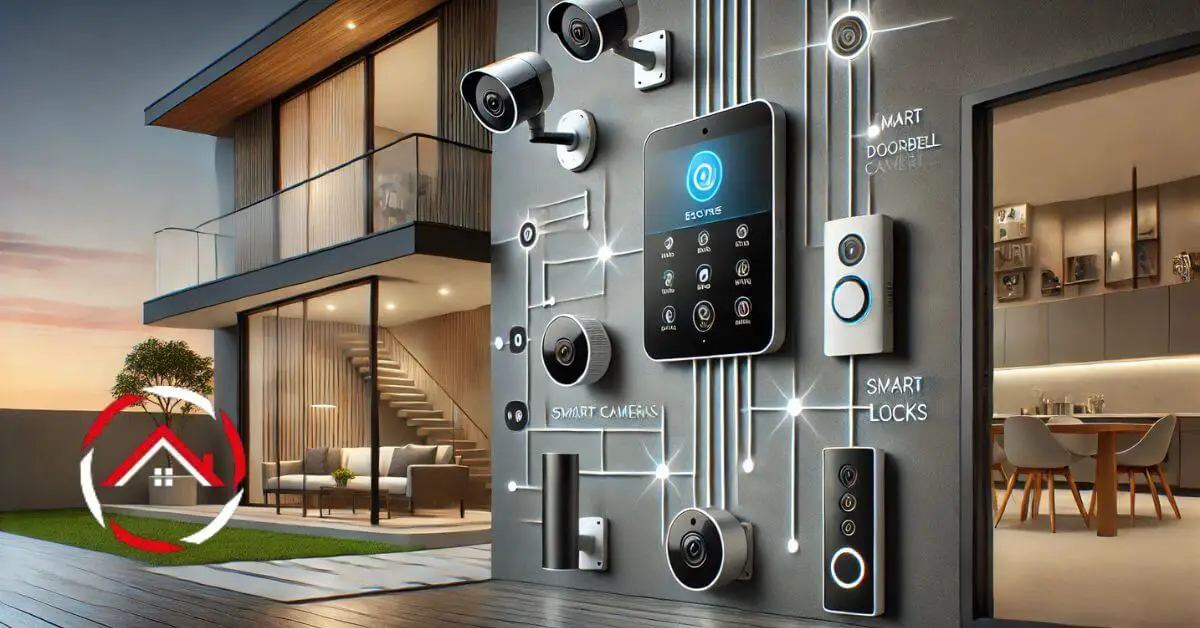Are you worried about the safety of your home? The best smart home security systems can give you peace of mind.
These advanced systems protect your home with high-tech features. They offer real-time monitoring, easy controls, and alerts right on your phone.
You can customize them to fit your needs. From smart cameras to motion sensors, options abound. You don’t have to feel unsafe again.
Choosing the right system is crucial. Let’s explore the top smart home security systems that keep you and your loved ones safe.
Secure your home today and enjoy a worry-free life!
Disclosure: This post contains affiliate links. If you purchase through these links, I may earn a small commission at no extra cost to you.
For more articles check the website: Home Tech Nerves
Table of Contents
A Comparison Table For the Best Smart Home Security Systems:
Smart Home Security Systems Comparison
| Brand | Features | Buy |
|---|---|---|
| ADT | 24/7 monitoring, mobile alerts | 🔴 Buy on Amazon |
| Vivint | Smart home, HD cameras | 🔴 Buy on Amazon |
| SimpliSafe | DIY setup, real-time alerts | 🔴 Buy on Amazon |
| Abode | Smart integration, self-monitoring | 🔴 Buy on Amazon |
| Ring Alarm | Alexa support, easy setup | 🔴 Buy on Amazon |
| Cove | Mobile app, no contracts | 🔴 Buy on Amazon |
What Is A Smart Home Security System?
A smart home security system enhances the safety of your home using advanced technology. It combines various devices to monitor your property in real time, offering peace of mind and control. Here are the key steps to understand how it works:
- Integration of Devices: Smart home security systems connect multiple devices, such as cameras, alarms, and sensors, to create a cohesive security network.
- Remote Monitoring: Users can monitor their homes from anywhere via mobile apps, ensuring they stay informed about any activity.
- Real-Time Alerts: The system sends instant notifications to your smartphone, alerting you to potential security breaches or unusual activities.
- Automation Features: Smart security systems can automate routines, like locking doors or turning on lights, enhancing safety and convenience.
- Voice Control: Many systems are compatible with smart assistants like Alexa or Google Assistant, allowing for hands-free operation.
- Customizable Settings: Users can personalize security settings and alerts based on their preferences and lifestyle, increasing effectiveness.
- Data Analytics: Advanced systems provide insights into usage patterns, helping you optimize your security measures and improve home safety.
What To Look For In A Smart Home Security System?
When choosing a smart home security system, it’s essential to focus on features that enhance safety and convenience.
A reliable system should integrate seamlessly with your lifestyle while providing robust protection for your home.
Here are key factors to consider when selecting the right smart home security system for your needs.
1. Monitoring Options
- Description: Look for systems that offer both professional and self-monitoring options.
- Importance: This flexibility allows you to choose the level of oversight that suits your lifestyle and budget, ensuring you never miss important alerts.
2. Compatibility with Smart Home Devices
- Description: Ensure the security system integrates well with other smart devices in your home, such as lights, locks, and thermostats.
- Importance: Compatibility enhances automation and control, allowing you to create a cohesive smart home environment that responds to your needs.
Read more: Alexa-Compatible Home Security Systems
3. Ease of Installation
- Description: Opt for systems that are easy to install, ideally with DIY options.
- Importance: Simple installation saves time and costs, making security accessible without the need for professional help.
Read more: How to Install a Home Security System?
4. Customizable Alerts and Notifications
- Description: The ability to customize alerts based on your preferences is crucial.
- Importance: Personalized notifications keep you informed about relevant activities, allowing you to respond quickly to potential threats.
5. Video Surveillance Features
- Description: Look for high-definition cameras equipped with night vision, motion detection, and two-way audio.
- Importance: Video surveillance enhances security by providing visual evidence and allowing you to communicate with visitors or intruders.
6. Cost and Contract Flexibility
- Description: Assess the pricing structure, including monthly monitoring fees and equipment costs, as well as contract requirements.
- Importance: Finding a cost-effective solution with flexible terms ensures you get the best value without being locked into a long-term commitment.
7. Customer Support and Warranty
- Description: Reliable customer support and a solid warranty can make a significant difference.
- Importance: Good support ensures you have help when needed, while a warranty provides peace of mind about your investment, covering any potential issues.
Best Smart Home Security Systems
Smart home security systems are essential for protecting your home and loved ones.
They combine advanced technology with user-friendly features, ensuring safety at your fingertips.
Let’s explore some of the best options available today, focusing on their features, pricing, and the pros and cons of each system.
1. ADT
Features:
- 24/7 professional monitoring.
- Mobile app control for real-time alerts.
- Customizable security packages.
Pros
- Comprehensive Coverage: Offers extensive equipment options for tailored security.
- Reliable Monitoring: Well-established brand with a strong reputation.
Cons
- Higher Cost: More expensive than many DIY systems.
- Long-Term Contracts: Requires a contract commitment.
| ADT Home Security System |
|---|
 |
| Top Features: |
| ✔ 24/7 Professional Monitoring – Trusted security with rapid response |
| ✔ Smart Home Automation – Control lights, locks, and cameras remotely |
| ✔ Customizable Packages – Choose the perfect plan for your needs |
| Customer Ratings: ★★★★★ (4.7/5) |
| Buy on Amazon |
Read more: ADT Home Security System Review
2. Vivint
Features:
- Smart home integration with devices like thermostats and lights.
- High-resolution cameras with night vision.
- Smart locks and doorbell cameras for enhanced security.
Pros:
- User-Friendly App: Intuitive mobile app for easy control.
- 24/7 Monitoring: Professional monitoring services included.
Cons:
- Expensive Upfront Costs: Higher initial investment for equipment.
- Contract Required: Long-term contracts may be a drawback for some users.
| Vivint Home Security System |
|---|
 |
| Top Features: |
| ✔ 24/7 Professional Monitoring – Advanced security with real-time alerts |
| ✔ Smart Home Integration – Works with locks, lights, and thermostats |
| ✔ Customizable Security – Tailor the system to your home’s needs |
| Customer Ratings: ★★★★★ (4.7/5) |
| Buy on Amazon |
Read more: Vivint Home Security System Review
3. SimpliSafe
Features:
- DIY installation with no tools required.
- Real-time alerts via smartphone app.
- Customizable equipment packages.
Pros:
- Affordable Monitoring: Low-cost monthly plans.
- No Contracts: Flexibility to cancel anytime.
Cons:
- Limited Smart Home Integration: Fewer compatibility options with third-party devices.
- Basic Equipment: Some features may lack advanced technology.
| SimpliSafe Home Security System |
|---|
 |
| Top Features: |
| ✔ 24/7 Professional Monitoring – Instant emergency response |
| ✔ Wireless Security – No drilling or wiring needed |
| ✔ Smart Alerts – Get real-time notifications |
| Customer Ratings: ★★★★★ (4.7/5) |
| Buy on Amazon |
Read more: Review of SimpliSafe Home Security System
4. Abode
Features:
- DIY installation with user-friendly setup.
- Integration with smart home devices and platforms.
- Free self-monitoring option available.
Pros:
- Cost-Effective: Affordable home security system with plans for budget-conscious users.
- Smart Home Compatibility: Works with various platforms, including Google Home and Amazon Alexa.
Cons:
- Limited Professional Monitoring: Not as comprehensive as some competitors.
- Initial Setup Complexity: Some users may find the DIY setup challenging.
| Abode Home Security System |
|---|
 |
| Top Features: |
| ✔ Smart Home Integration – Works with Alexa, Google Assistant & Apple HomeKit |
| ✔ No Contracts – Flexible security with no long-term commitments |
| ✔ DIY or Professional Monitoring – Choose what fits your needs |
| Customer Ratings: ★★★★★ (4.6/5) |
| Buy on Amazon |
Read more: Abode Home Security Review
5. Ring Alarm
Features:
- Affordable starter kits with basic security features.
- Compatible with Alexa for voice control.
- Easy DIY installation and mobile app access.
Pros:
- Budget-Friendly: Low-cost options for basic security.
- User-Friendly App: Easy to navigate and control devices.
Cons:
- Limited Features: Basic system may not offer advanced options.
- Privacy Concerns: Previous issues with data sharing have raised questions.
| Ring Home Security System |
|---|
 |
| Top Features: |
| ✔ 24/7 Professional Monitoring – Stay secure always |
| ✔ Smart Alerts – Get instant notifications |
| ✔ Easy Setup – DIY installation |
| Customer Ratings: ★★★★★ (4.8/5) |
| Buy on Amazon |
Read more: Ring Home Security System Review
6. Cove
Features:
- Simple and intuitive mobile app.
- Flexible equipment packages and DIY installation.
- No long-term contracts required.
Pros:
- Ease of Use: Highly rated for user-friendly design.
- Customization Options: Tailor security settings to fit individual needs.
Cons:
- Limited Smart Home Integration: May not work with all third-party devices.
- Basic Equipment Availability: Fewer advanced features compared to some competitors.
| Cove Home Security System |
|---|
 |
| Top Features: |
| ✔ 24/7 Professional Monitoring – Rapid emergency response |
| ✔ DIY Installation – Easy and tool-free setup |
| ✔ Smart Alerts – Instant notifications via mobile app |
| Customer Ratings: ★★★★☆ (4.6/5) |
| Buy on Amazon |
Read more: In-Depth Cove Review
Features To Look For In A Smart Home Security System
Choosing the right types of home security systems, particularly the smart ones, can significantly enhance your home’s safety.
With various options available, it’s essential to know which features matter most.
Here are key features to consider when selecting a smart home security system that fits your needs.
1. 24/7 Monitoring
- Description: Look for systems that offer round-the-clock professional monitoring. This ensures that your home is always supervised, providing immediate response in case of emergencies.
- Importance: Continuous monitoring can alert authorities during break-ins, fire, or other emergencies, significantly improving response times.
2. Mobile App Control
- Description: A user-friendly mobile app allows you to control your security system from anywhere.
- Importance: This feature provides real-time notifications, remote access to cameras, and the ability to arm or disarm your system on the go.
3. Smart Home Integration
- Description: Ensure your security system can integrate with other smart devices and components in your home, such as smart locks, lights, and thermostats.
- Importance: This creates a seamless smart home experience, allowing automation of security tasks and enhanced control over your environment.
4. Video Surveillance
- Description: Look for systems that offer high-definition cameras with features like night vision, motion detection, and two-way audio.
- Importance: Video surveillance helps you monitor your property in real time and provides visual evidence in case of incidents.
5. Customizable Alerts and Notifications
- Description: The ability to customize alerts based on your preferences is crucial. This includes notifications for motion detection, door openings, and system status changes.
- Importance: Custom alerts ensure that you are informed about relevant events, allowing you to respond appropriately without being overwhelmed by unnecessary notifications.
6. Ease of Installation
- Description: Consider systems that offer DIY installation options. Many modern security systems come pre-configured for easy setup.
- Importance: A straightforward installation process saves time and reduces installation costs, making it accessible for homeowners.
7. Scalability and Flexibility
- Description: Choose a system that allows for easy expansion and customization. You should be able to add new devices and features as your needs change.
- Importance: Scalability ensures that your security system can grow with your home and lifestyle, providing long-term value and effectiveness.
Read more: Home Security System Features
What Is IFTTT?
IFTTT, which stands for “If This Then That,” is a web-based service that enables users to create automated actions between different apps and devices.
It allows you to connect various platforms, enhancing your smart home experience by automating tasks.
For example, you can set a rule to receive a notification if your smart doorbell detects motion.
With IFTTT, you can streamline daily activities, integrate services, and improve efficiency by creating “applets” that trigger specific actions based on certain conditions.
This makes it an essential tool for anyone looking to maximize their smart home capabilities and enjoy seamless automation.
Z-Wave Technology
Z-Wave technology is a wireless communication protocol designed specifically for smart home devices.
It enables secure and reliable connections between various gadgets, such as sensors, locks, lights, and thermostats, creating a cohesive smart home ecosystem.
Operating on a low-energy radio frequency, Z-Wave offers extended battery life and minimizes interference from other wireless devices.
One of its key features is the ability to create a mesh network, allowing devices to communicate with each other directly, enhancing range and reliability.
With Z-Wave, homeowners can easily automate their living spaces, improve energy efficiency, and enhance security through interconnected smart technology.
Wrap Up
Choosing the best smart home security system is crucial for your peace of mind. With options like ADT, Vivint, and SimpliSafe, you have plenty of choices to fit your needs and budget.
Each system offers unique features that enhance your home’s safety. By investing in a reliable security solution, you protect what matters most.
Take the time to evaluate your options and find the right fit for your lifestyle.
Don’t wait until it’s too late—secure your home today and enjoy the comfort of knowing you’re safe. Explore your options and make your home a safer place!
Frequently Asked Questions
What is a Smart Home Security System?
A Smart Home Security System integrates devices like cameras, door locks, motion sensors, and alarms, all controlled via smartphone apps or voice assistants. It allows remote monitoring, real-time alerts, and automation to enhance home safety and convenience.
How does a Smart Home Security System work?
Smart Home Security Systems use Wi-Fi-connected devices, allowing homeowners to monitor their property remotely. Cameras, sensors, and alarms send alerts to smartphones when unusual activity is detected. These systems can also be automated and integrated with other smart devices for enhanced security.
Are Smart Home Security Systems worth it?
Yes, Smart Home Security Systems provide added convenience and peace of mind. They offer real-time monitoring, remote control, and automation features, reducing the risk of break-ins. Their ability to integrate with other smart devices adds to home safety and energy efficiency.
Can a Smart Home Security System be hacked?
Although rare, Smart Home Security Systems can be vulnerable to hacking if not properly secured. Using strong passwords, regularly updating the system, and enabling two-factor authentication can help protect against hacking attempts, ensuring the security of the system.


